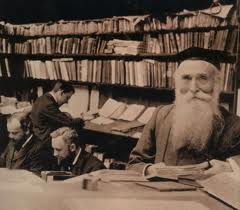
Sir James Murray, Scottish lexicographer and prime shaper of the OED, before the time of the retweet.
For thy sweet sexting remembered such wealth brings, that then I scorn to change my state with kings?
The majestical cyberspace fretted with golden fire – why it appears no other thing that a foul and pestilent congregation of vapors.
In time the savage cyberbully doth bear the yoke.
Apologies to Shakespeare, the man who did not have the advantage of referencing the Oxford English Dictionary when he penned Sonnet 29, Hamlet and Macbeth about half a millennium ago.
Lucky him. Lucky us. Imagine our Juliet at her balcony, first texting, then tweeting, then -- heaven forbid -- sexting, her dear Romeo. Somehow all the romance would be drained out of a scene that had to detail such a technologically-laden encounter.
But the times, and the language, they do change. And when some new word creeps into the pages of the OED -- hands down, any 8th grade teacher to graduate lit professor will tell you, the greatest superduper, groovey, most excellent dictionary on the planet -- well, you know that word is now firmly, officially, part of the language.
So, welcome, welcome, sexting, cyberbulling, Tweet and even retweet. The good editors at the OED embraced the words, … well, because they basically had to. When a word is in use billions of times a day, it makes you notice.
Not to say the OED does not bend to reality. After all, that ancient Anglo-Saxon/Germanic expletive, some refer to as the F-bomb, has had had a home there for decades.